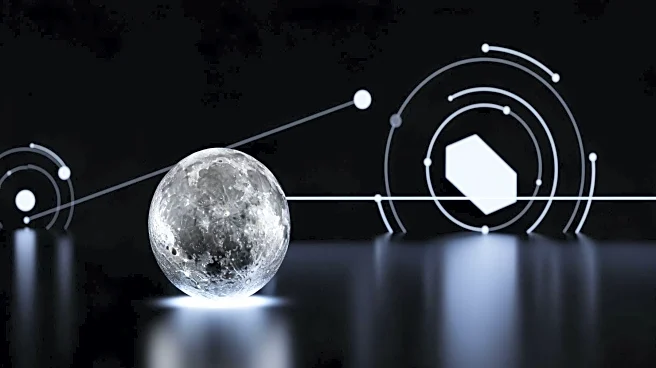What's Happening?
NASA has announced amendments to its Research Opportunities in Space and Earth Sciences (ROSES) 2025, specifically affecting the F.10 Payloads and Research Investigations on the Surface of the Moon (PRISM) program. This program is designed to facilitate
the development and deployment of scientific instruments and technology demonstration payloads on the lunar surface. The amendments include rescheduling key dates: the pre-proposal webinar is now set for December 5, 2025, Step-1 proposals are due by December 12, 2025, and Step-2 proposals by February 20, 2026. Additional changes involve updates to guidance on landing site hazard analyses and the removal of cooperative agreements as an award type. These adjustments aim to enhance the program's alignment with NASA's broader scientific and exploration goals.
Why It's Important?
The adjustments to the PRISM program are significant as they reflect NASA's ongoing commitment to advancing lunar exploration and scientific research. By refining proposal deadlines and program guidelines, NASA is ensuring that the research conducted aligns with its strategic objectives in planetary science, heliophysics, and technology development. This initiative supports the broader Artemis program, which aims to return humans to the Moon and establish a sustainable presence. The changes could impact researchers and institutions involved in lunar science, potentially influencing funding allocations and research priorities. As NASA continues to push the boundaries of space exploration, these amendments are crucial for maintaining momentum and focus in lunar research efforts.
What's Next?
Following the amendments, researchers and institutions interested in participating in the PRISM program will need to adjust their timelines and proposals to meet the new deadlines. The pre-proposal webinar scheduled for December 5, 2025, will provide further insights and guidance, helping participants align their projects with NASA's objectives. As the deadline for Step-1 proposals approaches, stakeholders will likely intensify their efforts to develop competitive submissions. The changes may also prompt discussions within the scientific community regarding the implications for future lunar missions and collaborations. NASA's continued focus on lunar exploration suggests that further adjustments and opportunities may arise as the program evolves.
















